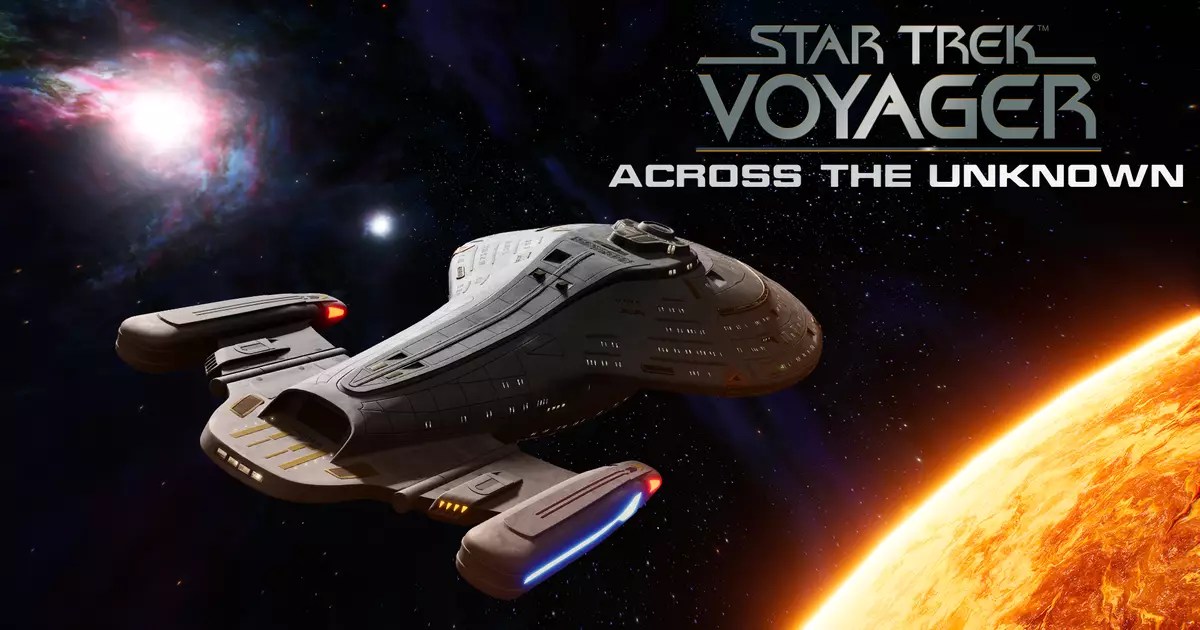The announcement of *Star Trek: Voyager – Across the Unknown* marks an intriguing pivot for the franchise, blending traditional adventure with innovative gameplay mechanics. Unlike typical space sims or narrative-driven titles, this game promises a hybrid experience, emphasizing survival, management, and moral dilemmas set against the vast, mysterious backdrop of the Delta Quadrant. This approach offers a fresh lens through which to revisit Voyager’s legendary journey, moving beyond mere nostalgia to explore what-if scenarios that challenge canonical boundaries.
While many fans eagerly anticipate a straightforward extension of the show’s adventures, this game dares to experiment. It invites players to customize their experience—whether that means navigating diplomatic quandaries or risking everything in combat—highlighting the critical importance of choice and consequence. This shift suggests a desire not only to preserve the spirit of Voyager but to deepen it by allowing players to craft their own stories within its universe.
The Allure of Moral Complexity and Dynamic Storytelling
One of the most compelling aspects of *Across the Unknown* is its emphasis on morally ambiguous decisions. Rather than easy good-versus-evil scenarios, players are pushed into gray areas—should they research technology shunned by the crew or abandon protocols for personal gain? These choices shape the narrative trajectory, fostering replayability and a sense of personal agency.
The game also aims to replicate the crew’s dynamic interactions, which are a cornerstone of the Voyager series. From the pragmatic Janeway to the enigmatic Seven of Nine, the diverse personalities and their relationships form a rich tapestry that influences gameplay. By possibly allowing characters like the Doctor to step into leadership roles or Neelix to become unexpectedly formidable, the game hints at a universe where the familiar can be continuously redefined.
This thematic focus on “what-if” scenarios is where the game could stand out significantly. It offers a playground for fans and newcomers alike, promising to push the boundaries of Voyager lore while staying rooted in core character identities. Such creative freedom not only reinvigorates interest but also elevates the narrative potential of the series.
Gameplay Mechanics: Challenging the Adventure Norms
The core gameplay mechanic—blending ship management, exploration, and rogue-lite elements—demonstrates an ambition to draw in players who crave strategic depth. Managing resources and systems aboard Voyager echoes the tension between order and chaos that characterizes long-range space missions. Variable runs ensure that no two playthroughs are alike, encouraging experimentation and learning from failure.
The addition of base-building components and away missions adds layers of tactical decision-making. Constructing facilities within Voyager suggests a focus on adaptability and long-term planning, aligning with the high-stakes environment the crew faces. Away missions, in which players assemble teams with specific skills, promise to deepen engagement. Will you prioritize scientific precision or rush headlong into danger? Such choices will test your ability to balance risk and reward.
However, the depiction of spacecraft navigation—characterized as a top-down, “solar system mini-game”—might detract from the grandeur fans cherish. If the macro perspective diminishes the vastness and mystery of the Delta Quadrant, it risks feeling disconnected from the epic scope of Voyager’s actual journey. Yet, if executed well, it could serve as a gripping tactical layer within the broader adventure.
Potential and Pitfalls: The Future of Voyager in Gaming
While the concept is promising, the lack of a definitive release date leaves much to speculation. The developer’s background—mostly known for Asterix adaptations—raises questions about their capacity to faithfully translate the nuanced Star Trek experience onto the screen. Yet, this could also be an opportunity for them to surprise the community with authentic storytelling and engaging gameplay.
Personally, my excitement is driven predominantly by nostalgia and curiosity. Fans like myself secretly harbor fantasies of radical reboots—Janeway as Borg Queen or the Doctor as a daring captain—highlighting how deeply Voyager’s universe resonates. If a game can tap into that kind of imaginative potential, it might transcend its genre limitations.
Moreover, the game’s emphasis on moral ambiguity and strategic flexibility suggests it could appeal beyond die-hard Trekkies. It has the potential to become a platform for exploring leadership under pressure, moral relativism, and crew cohesion under duress—universal themes that resonate across sci-fi storytelling.
*Star Trek: Voyager – Across the Unknown* seems poised to challenge both fan expectations and conventional game design. Whether it fulfills its ambitious promises or folds under the weight of high hopes remains to be seen. But what’s clear is that it offers a bold new chapter in Voyager’s legacy—a universe where the unknown is a playground for redefinition, reinvention, and pure adventure.


Leave a Reply